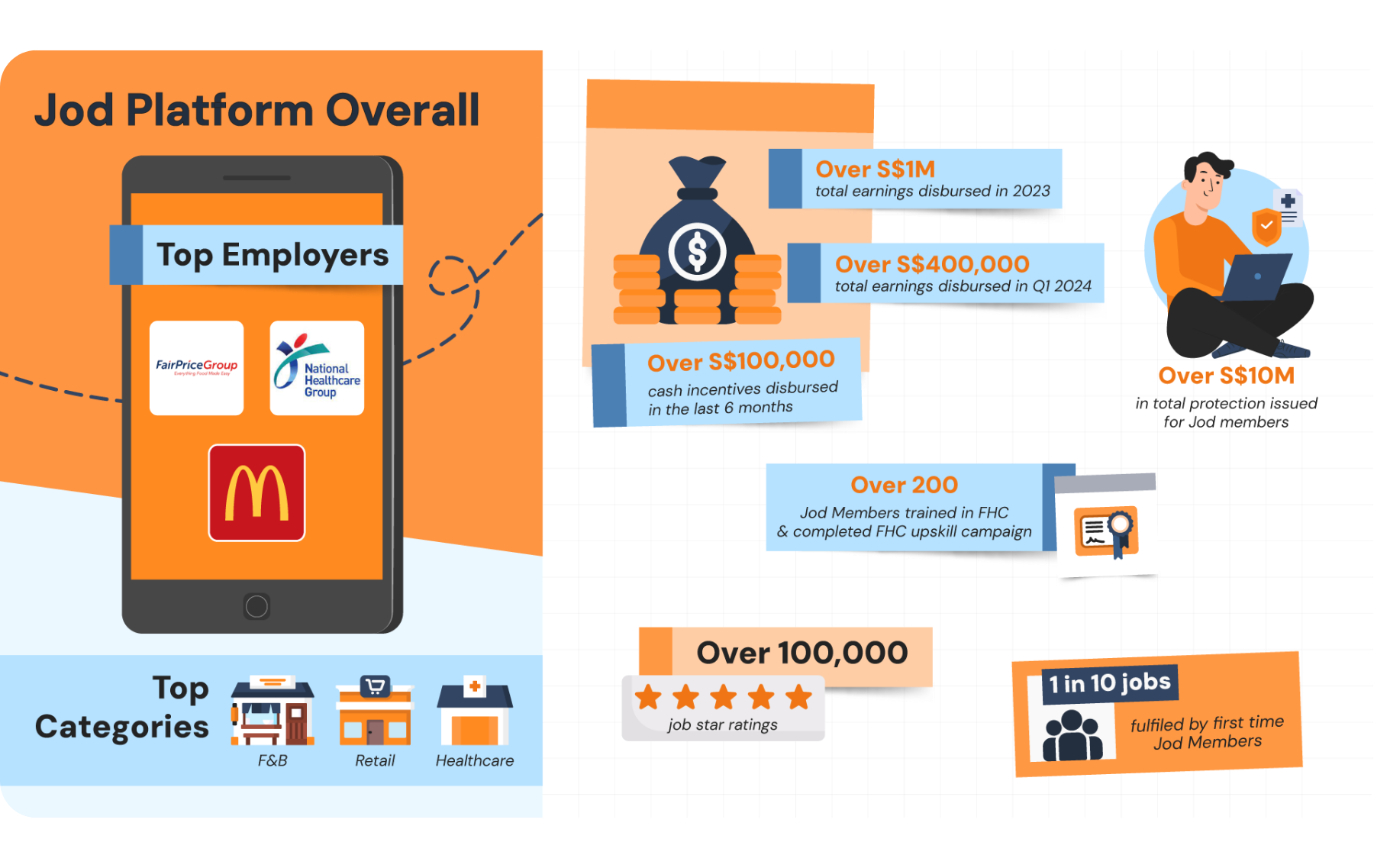Hybrid work models and higher pay reshape Singapore’s gig economy
- Josephine Tan

Singapore’s gig economy is significantly transforming, with hybrid work models and increased compensation becoming more prevalent in traditional sectors. The healthcare and hospitality industries are leading this shift, with demand for gig employees rising and hourly rates reaching up to S$22 (US$16.70).
These findings are outlined in the whitepaper Empowering Flexibility: A Deep Dive into Singapore’s Gig Work Landscape with Jod, published by Jobs On Demand (Jod), a multi-industry flexible gig work platform. The whitepaper revealed a 50% month-on-month increase in job applications from April to December 2023, driven by employees’ preference for flexibility and autonomy. Healthcare and hospitality sectors have seen a notable rise, with the number of primary own-account employees in Singapore reaching 202,700 in 2022.
The whitepaper also highlighted significant increases in average earnings. Gig employees in healthcare now earn between S$13 (US$9.87) and S$22 per hour, while those in food and beverage and hospitality earn between S$12 (US$9.11) and S$16 (US$12.14). This marks a 23% to 100% increase compared to the Local Qualifying Salary, which was raised to S$10.50 (US$7.97) per hour in Budget 2024.
READ MORE: The gig economy: Balancing fairness, sustainability and untapped potential
Additionally, Jod reported a 25% rise in first-time applications, indicating a growing trend of income diversification. Notably, 20% of Jod members hold multiple jobs, working an average of over 40 hours per week.
To meet the evolving needs of both employees and employers, Jod is focused on enhancing job satisfaction and retention through a rewards programme that aims to improve the overall work experience and contribute to gig employees’ financial wellbeing and job satisfaction.
The platform is also committed to upskilling employees by providing access to in-demand certifications, such as food handling, to boost employability. Furthermore, Jod is leveraging AI and innovative technologies to streamline hiring processes, improve communication, and create a more efficient and satisfying job engagement experience.
For more news and analysis on the latest HR and workforce trends in Asia, subscribe to HRM Asia and be part of the region’s largest HR community!






